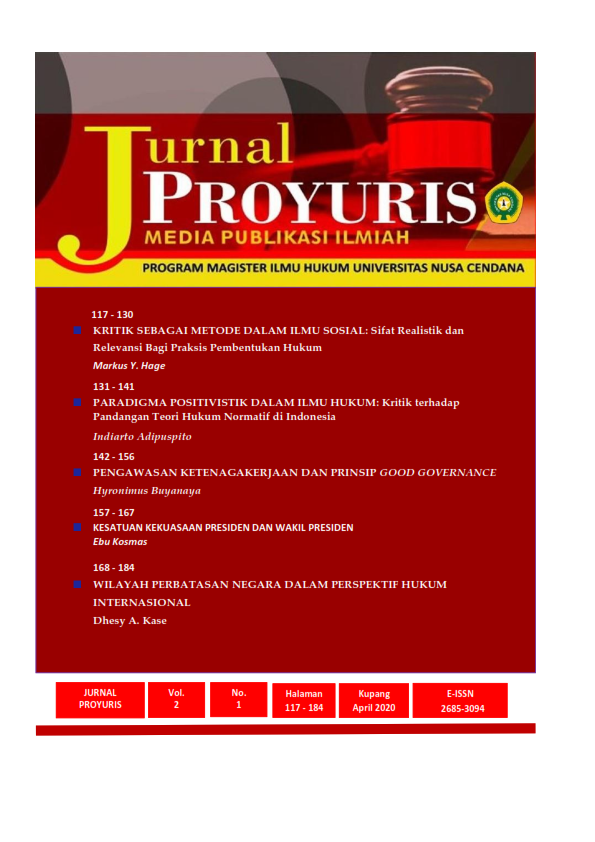KRITIK SEBAGAI METODE DALAM ILMU SOSIAL: Sifat Realistik dan Relevansi Bagi Praksis Pembentukan Hukum
Abstract
Starting from a need for change for the better. Criticism is not just a decision to take sides, but rather an attempt to overcome a crisis. Therefore, the agenda to change the situation becomes a very important element in critical theory. Critical theory is not only concerned with 'critical discourse'. But the main thing is to prepare an agenda to change the situation with real action. In the sense that it is not only aimed at explaining the real reality behind the visible reality, but also preparing an agenda for change and deconstruction of traditional theories as well as their methodologies that have tended to be rooted under the principle of neutrality which is not grounded. Criticism as a method is a set of beliefs that are historical realism, which presupposes reality as something that is constructed in the history of human civilization and is composed of certain social, cultural, economic, and political forces. Thus, criticism and methodology of criticism base the object of their study on conflicts of interest between 2 (two) segments of society, namely segments of society that do not have access economically, socially, and politically to a decent life and segments of society that do not have sufficient access both economically and socially. and politics in a decent life. The emergence of increasingly dynamic and even anomalous social realities, including law, makes small narrative social theories an option for analyzing such realities. Criticism as a method for criticizing law becomes relevant and can even be utilized for legal writing.

 Markus Y. Hage(1*)
Markus Y. Hage(1*)

